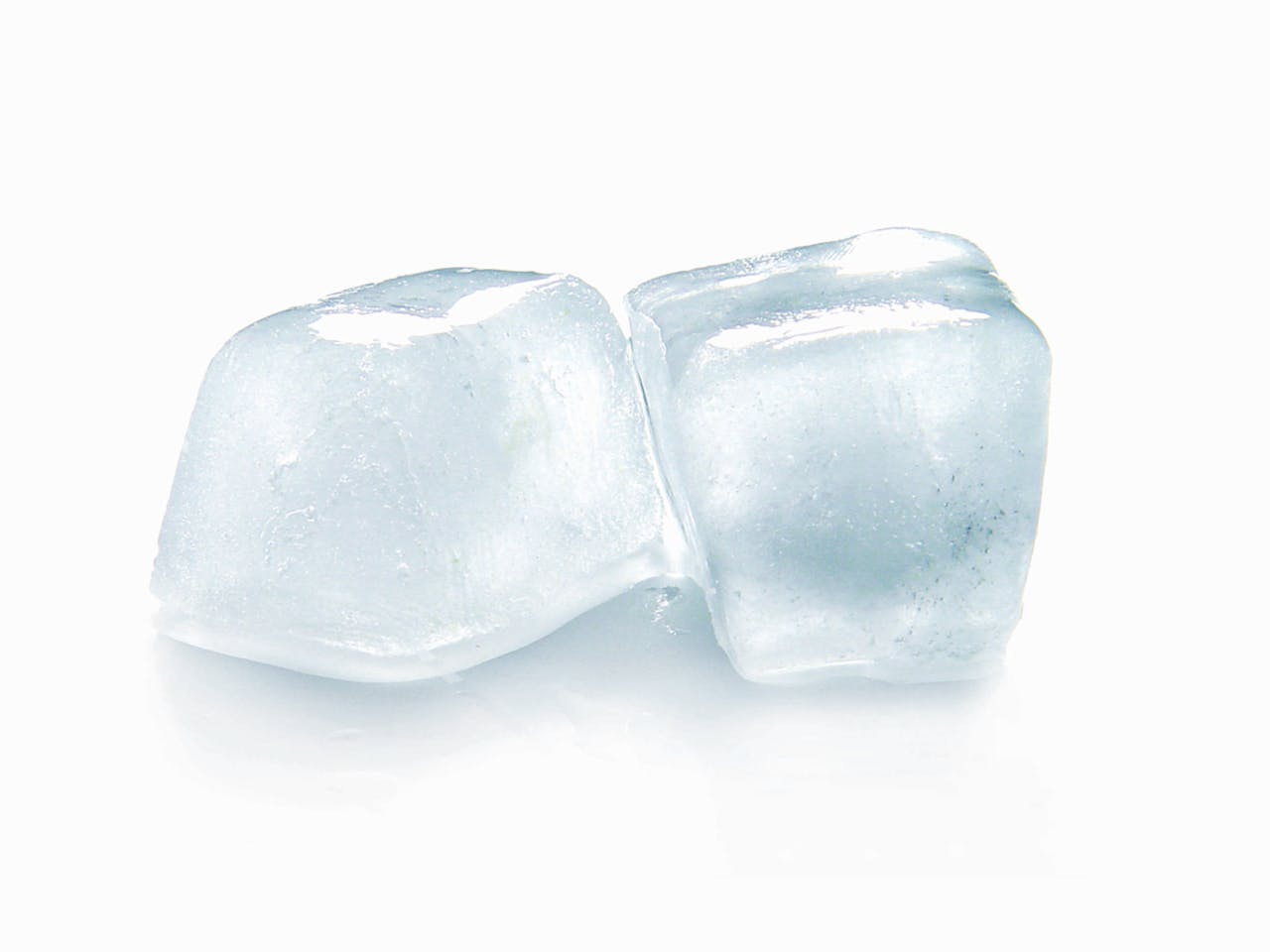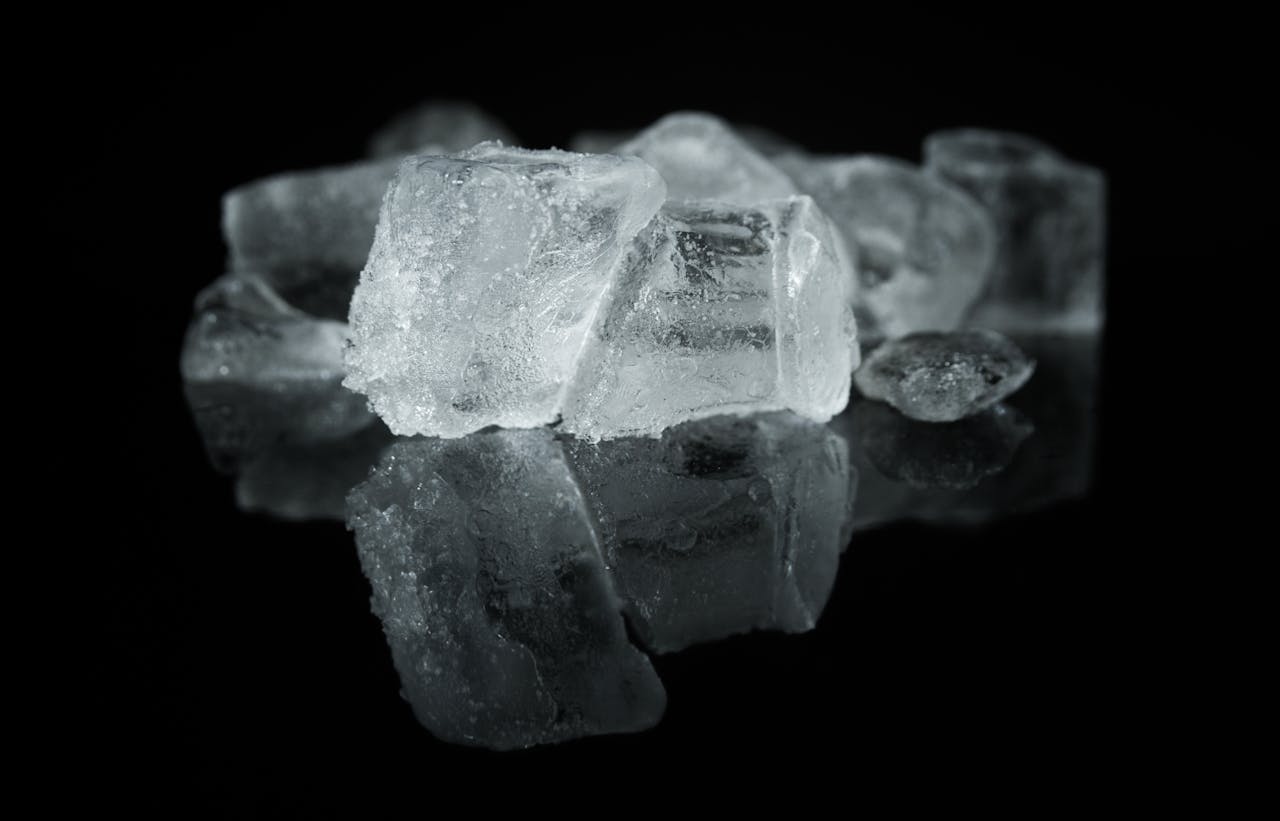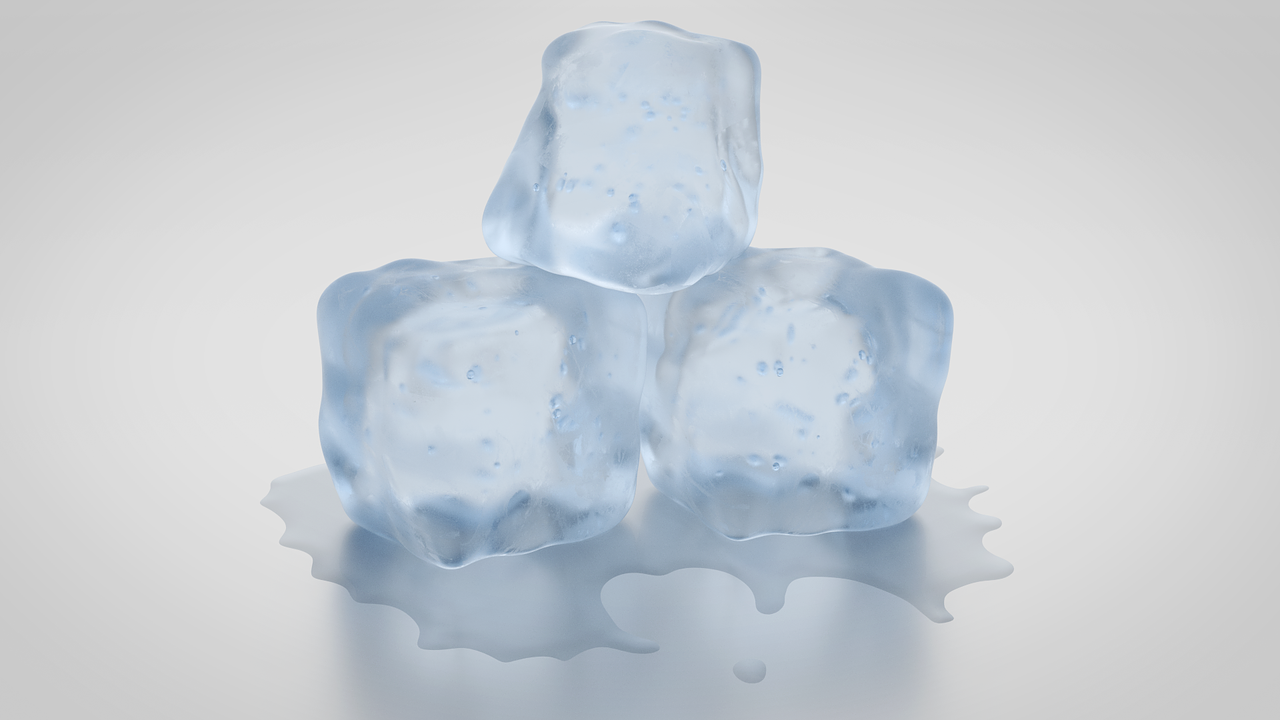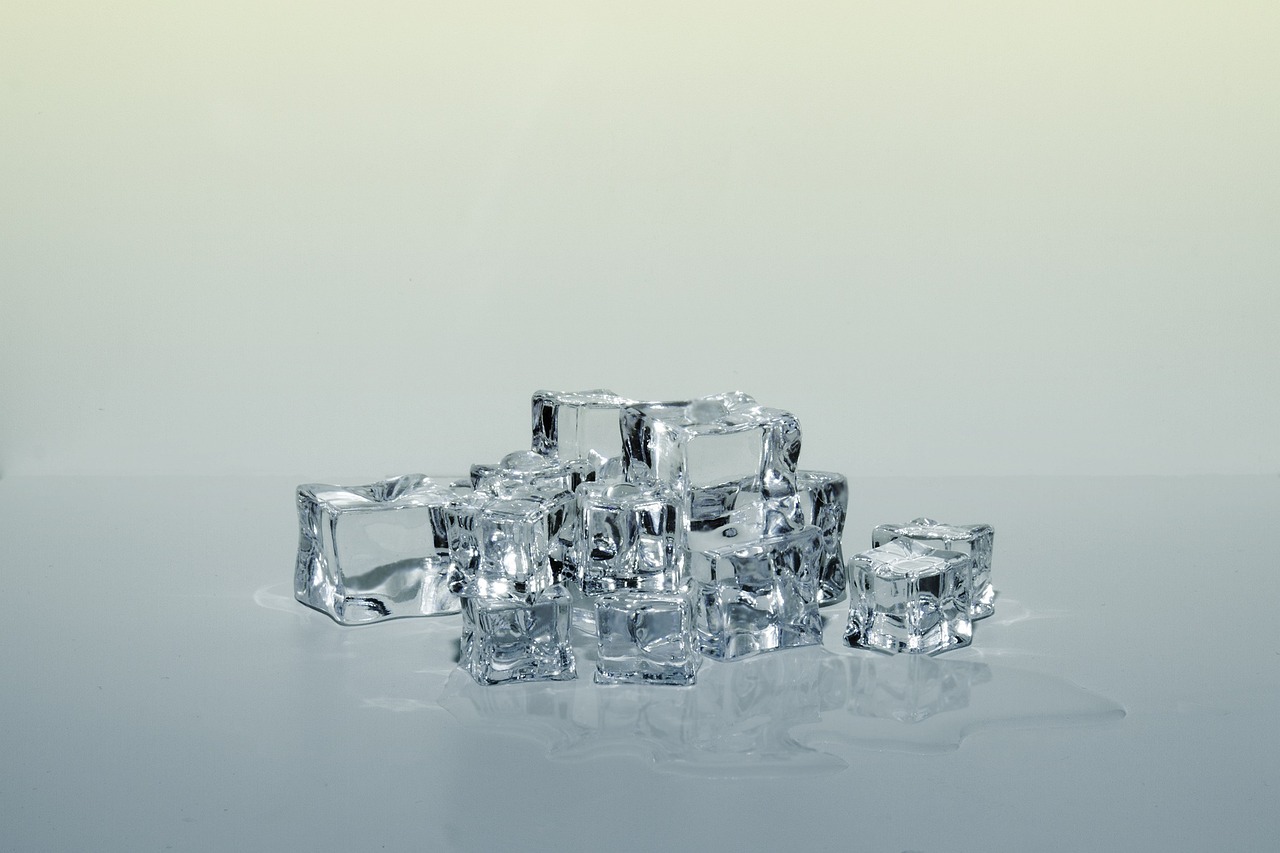Avoiding common refrigerator mistakes is crucial to keeping your food fresh for longer periods. By understanding and rectifying these errors, you can ensure that your groceries stay at their best quality, saving you money and reducing food waste. From improper temperature settings to overstuffing the fridge, these blunders can impact the freshness and safety of your stored items. This article will delve into the top refrigerator mistakes to steer clear of, providing practical tips on how to maintain an optimal environment for your food storage needs.

Understanding Refrigeration Basics
Temperature Settings
You need to set the temperature of your refrigerator just right to keep your food fresh for as long as possible. You want to aim for a temperature between 37 and 40 degrees Fahrenheit. This range is like a sweet spot for your food – not too cold, not too warm, just perfect! To make sure you’ve got it just right, you can use a thermometer to check the temperature inside your fridge. This little gadget will give you an accurate reading so you can be sure your food is being stored in the best conditions possible. By keeping the temperature consistent, you’re helping your fruits, veggies, meats, and dairy stay fresh and tasty for longer. So, next time you’re adjusting the controls on your fridge, remember that 37-40°F is the magic number to keep your food happy and fresh!
Air Circulation
To keep your food fresh for longer in the refrigerator, it’s important to make sure that air can circulate properly inside. This means you shouldn’t pack your shelves too full with items, as this can prevent the cool air from reaching all parts of the fridge. Additionally, be mindful of not blocking the air vents with food containers or packaging. These vents are designed to regulate the temperature inside the refrigerator, so blocking them can lead to uneven cooling and potential food spoilage. By allowing some space between your food items, you’re ensuring that cold air can circulate freely, keeping everything at the right temperature and extending the shelf life of your groceries.
Humidity Controls
When storing fruits and vegetables in your refrigerator, it’s important to use the humidity drawers correctly. These drawers are designed to help maintain the freshness of your produce by controlling the amount of moisture they are exposed to. Fruits generally require lower humidity levels, while vegetables thrive in higher-humidity environments. For example, leafy greens like lettuce and spinach prefer higher humidity to stay crisp and fresh longer.
To make the most of your humidity drawers, take the time to adjust the settings based on the types of produce you are storing. By setting the humidity levels accordingly, you can help extend the shelf life of your fruits and vegetables. Remember to check and adjust the humidity settings regularly to ensure optimal freshness. This simple step can make a big difference in how long your produce stays fresh and flavorful.
Organizing Your Fridge Properly
To maintain the freshness of your foods and prevent cross-contamination, group similar foods together in the refrigerator. This helps in organizing and locating items easily when needed. Store fresh produce like fruits and vegetables in the crisper drawer to keep them at the optimal humidity level.
Avoid storing cooking oils and condiments on the fridge door as temperature fluctuations can affect their quality over time. It’s essential to regularly check expiration dates and discard any expired or spoiled food to make room for fresh items.
Avoid Overstocking
- Do not overfill the fridge; allow air circulation to maintain proper cooling.
- Rotate items regularly to prevent forgetting about certain foods that may spoil.
- Keep a clear view of all items to avoid wastage and ensure nothing gets pushed to the back.
Zone Organization
Upper Shelves
On upper shelves, store ready-to-eat items for quick access. Leftovers and drinks can also be conveniently placed here. However, avoid placing raw meat on upper shelves to prevent any chance of cross-contamination.
Lower Shelves
For lower shelves, reserve space for storing raw meat and seafood. This prevents any drips or leaks onto other foods stored above. Place dairy products on lower shelves for consistent colder temperatures.
Crisper Drawers
To maintain the freshness of fruits and vegetables, use separate crisper drawers with adjustable humidity levels. Regularly clean and organize these drawers to ensure optimal storage conditions.
Container Use
When storing leftovers or open food packages, opt for airtight containers to preserve freshness longer. Label containers with dates to track freshness levels accurately. Choosing clear containers allows for easy visibility of stored items.
Missteps in Food Storage
When it comes to refrigerator mistakes, storing fresh produce properly is crucial. This helps maintain their freshness and prevents spoilage. Avoid leaving uncovered food in the refrigerator as it can lead to cross-contamination and the spread of microorganisms.
Check expiration dates regularly to ensure you consume food before it goes bad. For cooking oils, store them in a cool, dark place away from direct sunlight at room temperature to prevent them from becoming rancid.
Raw Meat Placement
- Store raw meat on the bottom shelf to prevent contamination.
- Keep raw meat in sealed containers or on a plate to avoid leaks.
- Use a separate drawer for raw meat to contain any spills.
Dairy Products Care
- Maintain consistent cold temperatures for dairy products to prevent spoilage.
- Store dairy away from the door to avoid temperature fluctuations.
- Regularly check expiration dates for dairy freshness.
Fruits and Vegetables
- Store fruits and vegetables separately to prevent premature ripening.
- Keep fruits in the crisper drawer with low humidity settings.
- Store leafy greens in a breathable bag to maintain crispness.
Temperature Mistakes to Avoid
Refrigerator owners should be mindful of room temperature settings to ensure food remains fresh. Adjust the controls to maintain a temperature between 37-40°F, ideal for food preservation. Incorrect temperatures can lead to quicker spoilage, affecting the quality of stored items.
Proper storage is crucial in maintaining food freshness. Avoid freezing by storing items like cooking oils away from extremely cold areas within the fridge. This prevents solidification or cloudiness, preserving the quality of these products for longer periods.
Overcrowding the refrigerator can disrupt the circulation of cold air, leading to uneven cooling and potential food spoilage. Allow adequate space between items for proper airflow, ensuring consistent cooling throughout the fridge. This simple adjustment can significantly extend the shelf life of various foods.
Regularly checking expiration dates on stored foods is essential to prevent health risks associated with consuming expired products. Be vigilant in monitoring expiration dates and consume items before they reach their expiry date. This practice not only ensures safety but also reduces food wastage.
Frequent Door Opening
Limiting unnecessary door openings is crucial in maintaining consistent temperatures within the refrigerator. Excessive opening and closing can cause fluctuations in temperature, impacting the overall freshness of stored foods. Plan ahead before opening the door to reduce cold air loss and preserve optimal cooling conditions inside.
Avoid leaving the refrigerator door open for extended periods, as this leads to energy wastage and compromises the efficiency of the appliance. Quick retrieval of items and prompt closure of the door help minimize temperature fluctuations, contributing to prolonged food freshness and energy conservation.
Not Adjusting Seasonally
Make seasonal adjustments to your refrigerator settings to adapt to changing external temperatures. Adjusting settings based on seasonal variations ensures that food remains adequately cooled regardless of environmental changes. Consider using fridge blankets during extreme weather conditions to enhance energy efficiency and maintain optimal cooling performance.
Rotate seasonal produce to the front of the fridge for easy access and visibility. By prioritizing perishable items that are sensitive to temperature changes, you can prevent unnecessary spoilage and maximize their freshness. These simple adjustments help optimize food storage practices throughout different seasons, promoting efficient usage of your refrigerator.
Ignoring Maintenance Tasks
Refrigerator maintenance is crucial to ensure your food stays fresh for longer periods. Regularly cleaning the coils at the back of your fridge prevents dust buildup that can affect cooling efficiency. Adjusting temperature controls optimally stores foods, maintaining freshness. Rotate items to prevent spoilage.
Regular Cleaning
- Clean spills promptly to prevent bacteria growth.
- Wipe shelves weekly for hygiene upkeep.
- Deep clean quarterly to eliminate odors and mold.
Seal Checks
- Inspect door seals often for wear.
- Test seal by sliding paper; if it slips, replace it.
- Clean seals with warm, soapy water.
Defrosting Process
- Regularly defrost the freezer to avoid ice buildup.
- Use a pan during defrosting to collect water.
- Avoid sharp objects for defrosting to prevent damage.
Misunderstanding Expiry Dates
When it comes to expiration dates, it’s crucial to check them regularly to prevent consuming expired foods. Make sure you understand the difference between “best before” and “use by” labels. Seek advice from experts or reliable sources on how long different foods can last in the fridge. Be cautious about leaving uncovered food items in the refrigerator, as they can spoil faster.
Best Before vs. Use By
- Differentiate between “best before” and “use by” labels for food safety.
- Consume items before the “use by” date for freshness.
- Use the “best before” date as a guideline for quality but not safety.
Trusting Your Senses
Trusting your senses of smell and sight is essential in detecting spoiled food accurately. Discard any food that looks or smells off, even if it’s within the expiration date. Apply common sense when evaluating food quality stored in the fridge.
Incorrect Freezer Usage
Improper freezer usage can lead to refrigerator mistakes that compromise food quality and safety. To prevent these issues, it’s crucial to store foods correctly in the freezer. For instance, keeping fresh produce in the freezer can significantly extend its shelf life. Make sure to use airtight containers or freezer bags for storing food in the freezer. Checking expiration dates before freezing items is essential to ensure their freshness.
Freezer Burn Prevention
To avoid freezer burn, which deteriorates food quality, always use airtight packaging for frozen items. Removing excess air from freezer bags before sealing them helps maintain food quality. Labeling and dating frozen items can help track freshness levels and prevent unnecessary waste.
Packaging for Freezing
When preparing items for long-term storage in the freezer, opt for freezer-safe containers and bags. Wrapping items tightly before freezing them is crucial to prevent freezer burn and preserve taste. Another useful tip is to freeze items in portion sizes, making meal planning more convenient and efficient.
The Impact of Refrigerator Placement
When placing your refrigerator, ensure it’s away from direct sunlight and heat sources for consistent cooling. Avoid storing uncovered food items to maintain freshness and prevent odor absorption. Keep fresh produce in designated crisper drawers for optimal moisture retention.
Smart Refrigeration Technologies
Refrigerators come equipped with advanced features to help maintain food freshness. Adjust the controls based on the type of foods stored inside. Store fresh produce in crisper drawers to prevent freezing or exposure to excessively cold temperatures. Avoid placing cooking oils and uncovered food items near areas with strong cold air circulation.
Regularly checking expiration dates ensures that foods are consumed within the recommended time frame, preventing spoilage and maintaining freshness. By utilizing these smart refrigeration technologies, you can extend the shelf life of your groceries and reduce food waste.
Temperature Management Apps
- Use temperature management apps to monitor fridge conditions remotely.
- Set up alerts for temperature fluctuations to prevent food spoilage.
- Track energy usage through apps to optimize fridge efficiency.
Energy-Saving Features
Energy-saving features like eco mode and vacation mode help reduce electricity consumption. Keeping the refrigerator well-stocked helps maintain temperature stability by preventing warm air from entering when the door opens. Regularly check and maintain energy-efficient settings for optimal performance and cost savings.
Final Remarks
A thorough understanding of refrigeration basics, proper organization of the fridge, avoiding common food storage missteps, maintaining optimal temperatures, staying on top of maintenance tasks, being mindful of expiry dates, utilizing the freezer correctly, considering refrigerator placement, and embracing smart technologies are all crucial elements in maximizing the freshness and longevity of your food. By implementing these strategies, you can ensure that your groceries stay fresh for longer periods, reducing waste and saving money in the long run. Remember, a well-maintained and properly used refrigerator is key to preserving the quality of your food items.
Take the time to review your current refrigerator habits and make adjustments where necessary. Small changes can lead to significant improvements in food preservation and overall efficiency. Stay informed about best practices and make conscious choices to optimize your refrigerator use for fresher, healthier meals.

Frequently Asked Questions
How important is it to understand refrigeration basics?
Understanding refrigeration basics is crucial as it helps in optimizing the performance of your refrigerator, ensuring food safety, and extending the shelf life of your groceries. It also enables you to troubleshoot common issues effectively.
What are some common missteps in food storage that should be avoided?
Common missteps in food storage include storing perishables in the fridge door, overcrowding shelves, and not utilizing airtight containers. These mistakes can lead to quicker food spoilage and potential health risks due to improper storage conditions.
Why is it essential to avoid temperature mistakes when using a refrigerator?
Maintaining the correct temperature settings in your refrigerator is vital to preserving the freshness and quality of your food items. Incorrect temperatures can accelerate bacterial growth, compromise food safety, and shorten the shelf life of perishable goods.
How does ignoring maintenance tasks impact the efficiency of a refrigerator?
Neglecting maintenance tasks such as cleaning coils, checking seals, and defrosting freezers can result in decreased energy efficiency, potential breakdowns, and reduced lifespan of the appliance. Regular maintenance ensures optimal performance and prolongs the longevity of your refrigerator.
What role does smart refrigeration technology play in enhancing food preservation?
Smart refrigeration technologies offer features like precise temperature control, humidity regulation, and remote monitoring capabilities. These advanced functionalities help maintain ideal storage conditions for different types of foods, reducing waste, and ensuring longer freshness.

Zuta Appliance Repair: Revitalizing Berkeley Kitchens with Premier Refrigerator Services
In the heart of Berkeley, CA, where the pace of life is ever vibrant, and the demand for reliability in household appliances is paramount, Zuta Appliance Repair emerges as your ultimate partner in ensuring your kitchen remains the heart of your home. Understanding the central role your refrigerator plays in daily life, from keeping your food fresh and safe to optimizing your home’s energy efficiency, we commit ourselves to deliver nothing short of excellence in refrigerator maintenance. With Zuta Appliance Repair, experience not just a service, but a promise of quality, honesty, and environmental stewardship, aimed at enhancing your home’s functionality and your quality of life.
Embrace the solution to a myriad of refrigerator woes with Zuta Appliance Repair, where our specialized repair services promise to breathe new life into your appliance. Revel in the dual rewards of a significantly extended appliance lifespan and a notable reduction in energy bills. Our adept team, armed with unparalleled expertise and a friendly demeanor, ensures that your refrigerator maintenance needs are met with solutions that are both cost-effective and environmentally friendly. This isn’t merely about repairs; it’s about affording you the peace of mind that comes with a seamlessly functioning kitchen, making Zuta Appliance Repair not just a choice, but a necessity for every Berkeley homeowner.
Let today be the day you decide to optimize your kitchen’s efficiency and safeguard the heart of your home against untimely wear and tear. With Zuta Appliance Repair, you’re choosing more than just repairs; you’re opting for an enhanced lifestyle. Ready to transform your kitchen and your life? Contact us now at (415) 592-4633 and let Zuta Appliance Repair extend the life of your refrigerator, ensuring it remains a cornerstone of your daily life, offering convenience, efficiency, and tranquility.
Disclaimer
The materials available on this website are for informational and entertainment purposes only and not to provide legal or professional advice. You should contact your attorney or home improvement specialist to obtain advice concerning any particular issue or problem. You should not act or refrain from acting based on any content included in this site without seeking legal or other professional advice. The information presented on this website may not reflect the most current home improvement developments. No action should be taken in reliance on the information on this website. We disclaim all liability concerning actions taken or not taken based on any or all of the contents of this site to the fullest extent permitted by law.







